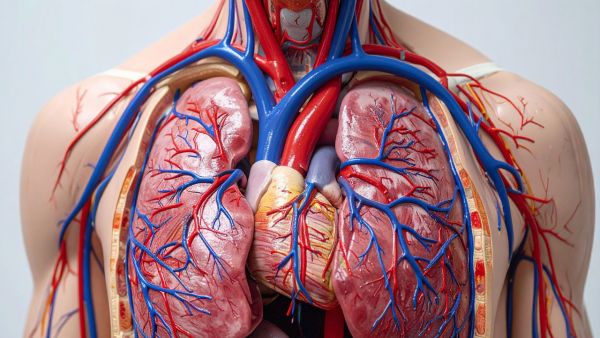This common morning habit is silently damaging arteries; can increase heart death risk by 87%, says study

How we start our mornings has a lot to do with how the rest of the day is going to go. From picking up mobile phones after waking up, to struggling to get that one cup of coffee, all morning rituals matter. At first, these might seem harmless but medical professionals are now concerned about how morning habits contribute to clogged arteries, which harm our cardiovascular health . One of the habits, as research points out, is skipping breakfast
For years, the breakfast meal has been hailed as vital. But with busy lives, increasing numbers of people are skipping breakfast altogether or consuming things on the go, (which is also pretty harmful) ,pushing back the morning meal in the guise of intermittent fasting, weight management, or time pressures. Research now indicates this practice is potentially much worse than it looks, especially for cardiovascular and arterial health.
How it influences the health of arteries

Arteries transport oxygen-carrying blood from the heart to all cells throughout the body. Over time, it may become constricted because of the buildup of plaque, known as atherosclerosis. When this occurs gradually and silently, it raises the threat of heart attacks and strokes.

Skipping breakfast also sets off a sequence of physiological events that can hasten the process. Studies indicate that individuals who usually skip breakfast are likely to have higher levels of LDL (bad) cholesterol, increased blood pressure, and increased insulin resistance. All these three factors combined raise the risk of arterial plaque formation.
When the body is starved of nutrients in the morning, it compensates by releasing stress hormones such as cortisol. This surge of hormones raises inflammation, which is central to the hardening of arteries. Furthermore, individuals who eat breakfast skip meals later in the day, gobbling high-calorie or processed foods that increase triglyceride levels and put pressure on the vascular system.
A recent analysis from the tudy looked at how breakfast habits relate to the early stages of artery disease. Researchers identified three breakfast patterns among participants:
- High-energy breakfast (>20% of total daily calories) – 27% of participants
- Low-energy breakfast (5–20% of total daily calories) – 70%
- Skipping breakfast (<5% of total daily calories) – 3%
These findings showed that people who skipped breakfast had a significantly higher risk of developing atherosclerosis.
Research that shows the risk
A report in the Journal of the found adults who skipped breakfast were 87% more likely to die of cardiovascular disease than those who regularly consumed it. A different study conducted in Spain revealed individuals who routinely skipped breakfast had thicker walls in their carotid arteries, a primary indicator of nascent atherosclerosis.
Experts believe this connection is not just about what one eats, but WHEN one eats. The body follows a circadian rhythm, and eating in alignment with that rhythm helps regulate metabolism and blood sugar levels. Skipping breakfast disrupts this rhythm, forcing the body into a stress state that promotes fat storage and inflammation — both harmful to arterial health.
Why symptoms often go unnoticed

The most troubling aspect of this condition is that it advances stealthily. Atherosclerosis becomes established over a long period of years, and frequently decades, with no apparent symptoms until a dramatic event occurs. Preliminary symptoms such as minor fatigue, dizziness, or shortness of breath are usually attributed to normal fatigue. When the individual develops chest pain or heart attack, the disease is well established.
Blood tests, lipid profile testing, and imaging scans such as carotid ultrasound are the only dependable methods to diagnose changes within arteries early. Physicians also stress the need to monitor blood sugar and blood pressure levels since both are highly correlated with vascular health.
How to keep your arteries healthyThe solution starts with returning balance to the morning routine. Having a healthy breakfast regulates metabolism and enhances steady energy levels. Nutritionists suggest incorporating foods high in fiber, antioxidants, and healthy fats — like oats, nuts, seeds, fruits, and whole grains. These reduce LDL cholesterol and guard the inner wall of blood vessels. In all this, hydration is equally important, water helps in flushing out toxins from the body, and regulates all processes of the body.
Just as important is steering clear of processed breakfast foods filled with added sugars or trans fats. These are likely to trigger a blood sugar spike and inspire inflammation, which negates the whole idea of an early morning meal.
This silent damage caused by skipping breakfast, reminds us that heart health is fragile, and depends on what we do, how we do, and what we eat. As much as it is important watch our weight, it is equally important to set the tone for the day and not neglect any meal, especially breakfast.
 How we start our mornings has a lot to do with how the rest of the day is going to go. From picking up mobile phones after waking up, to struggling to get that one cup of coffee, all morning rituals matter. At first, these might seem harmless but medical professionals are now concerned about how morning habits contribute to clogged arteries, which harm our cardiovascular health . One of the habits, as research points out, is skipping breakfast
How we start our mornings has a lot to do with how the rest of the day is going to go. From picking up mobile phones after waking up, to struggling to get that one cup of coffee, all morning rituals matter. At first, these might seem harmless but medical professionals are now concerned about how morning habits contribute to clogged arteries, which harm our cardiovascular health . One of the habits, as research points out, is skipping breakfast


